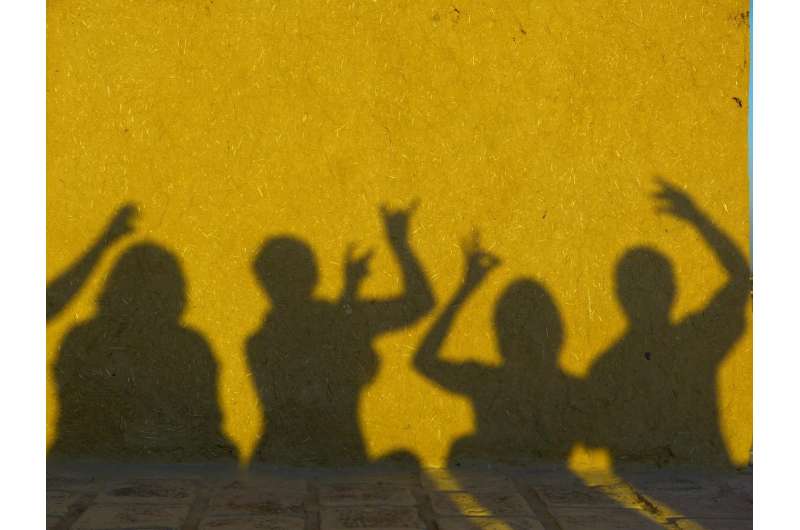How humanity can come together to tackle global challenges: A new study's findings

April 16, 2024
In alignment with Science X's stringent quality control measures, this article has been carefully reviewed. Identified herein are content quality indicators such as:
- Fact-checked
- Peer-reviewed publication
- Proofread
- Reliable references
Endorsed by University of Oxford
Innovative research steered by the University of Oxford points to the potency of shared global life experiences and shared biology in fostering psychological connection with all of humanity. This connection can drive large-scale prosocial action and help in tackling global issues. The results of this research are published in the current issue of Royal Society Open Science.
The formidable challenges the world currently grapples with; like climate change, poverty, food shortage, and terrorism, can be mitigated only if humanity comes together in a united, global effort. But, what does it take to amalgamate humanity towards this common objective?
The findings of the recent study suggest that the answer could be nestled in two of the strongest catalysts of social bonding identified in group psychology - shared heritage and shared transformative experiences. However, these elements need to be shared on a grander scale, extending beyond tribes, nations, or religious communities to envelop humanity as a whole.
Lukas Reinhardt, the lead author of the study and the head of the Global Cohesion Lab at Oxford's Centre for the Study of Social Cohesion (CSSC), stated that the rising trend of divisive "Us-vs-Them" thinking globally only fuels conflicts and hampers the resolution of urgent global issues. In contrast, the study reveals that a shared global identity can be nurtured, which could promote cooperation on an international level. The potential implications of these findings for policymakers, activists, politicians, and NGOs are manifold.
Incorporating over a thousand American participants across two studies, the researchers analyzed if shared biology and shared experiences with people worldwide can facilitate bonding with the global human race and encourage global-scale prosocial action.
The study participants watched a TED Talk by journalist A.J. Jacobs to test if appeals to our collective global biology can lead to bonding with humanity on a larger scale. Jacobs' talk showcases all humans’ shared lineage, painting humanity as one extensive family. Participants who watched the TED Talk reported substantially stronger emotional connections with humanity compared to a control group.
Moreover, the participants who viewed the video expressed stronger social bonds with individuals from an opposing political party than the control group. The study also analysed if shared global experiences could foster global-scale social bonding, utilizing the universal experience of motherhood for the study. The research found that sharing experiences of motherhood led to mothers feeling a stronger bond with other women worldwide.
The intensity of social bonds was gauged through a series of images of two overlapping circles representing the participant and a group like humanity or all the world's mothers. Participants selected the image best portraying their connection with the group. The image depicting the most overlap was indicative of the strongest social bond with the group.
In both the studies, the sentiment of psychological bonding on a global scale was vividly echoed in measures of prosocial action. Using a measure from behavioral economics in hypothetical scenarios, participants indicated how they would share a certain amount of money between two distinct groups. This measurement has proved to predict behaviors accurately, shedding light on how intensely participants value different groups.
Professor Harvey Whitehouse, Director of the CSSC at the University of Oxford who also co-authored the study, stated, 'At the CSSC, we have been exploring the two pathways to strong forms of group cohesion, founded on shared biology and shared experiences. But it is only now that we have evidenced that these bonds can unite all of humanity. If we have managed to do this in a straightforward experiment, envisage what we can achieve in terms of motivating action on global problems in the future.'
He added, 'Remembering that we are all related and all experience many of the same challenges in life could be the key to addressing a wide range of global problems, from intergroup conflicts to extreme poverty and the climate crisis.'
Journal information: Royal Society Open Science
Provided by University of Oxford




